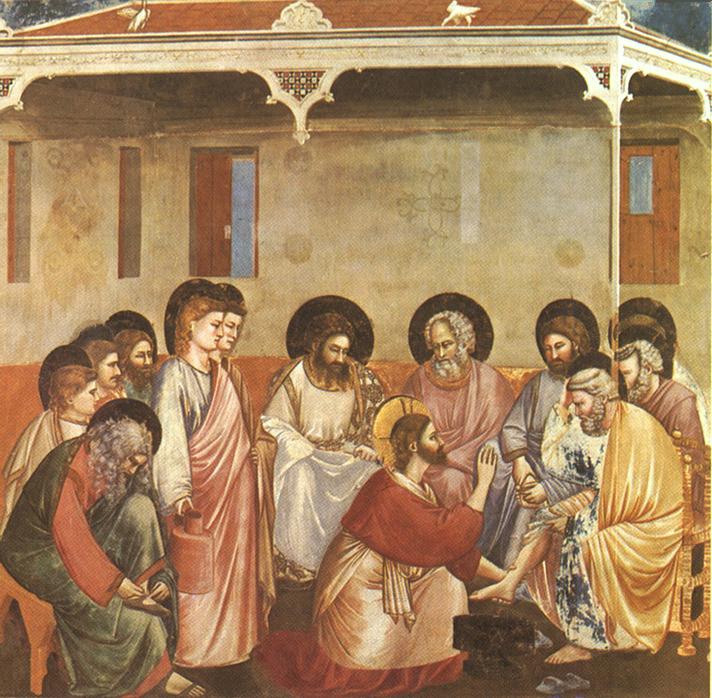“And behold, one of those who accompanied Jesus put his hand to his sword, drew it, and struck the high priest’s servant, cutting off his ear. Then Jesus said to him, “Put your sword back into its sheath, for all who take the sword will perish by the sword. Do you think that I cannot call upon my Father and he will not provide me at this moment with more than twelve legions of angels.” (Matthew 26: 51-53)
One feels, during Holy Week, weighted down with meaning, with the dread of it all, with the magnitude of the sacrifice – and, also, with the mystery, because even after two thousand years of interpretation, if you step aside and look for a moment at the Gospel passages, as for the first time, there is much that defies easy explanation.
In this particular passage, we note one of many surprising reversals that occurs on this day, along with the initiation of the Eucharist in what looks like a bizarre or even sacrilegious manipulation of established ritual. In the Old Testament, Yahweh could always be counted on to smite the enemy, and perhaps it was with anticipation of some worldly smiting that the disciples gathered that evening, after their master’s triumphant entry into Jerusalem. But God here does not punish. God, instead, prepares to be punished.
Insofar as we are called to model our behavior on that of Christ, the events of Holy Thursday, and those of the Passion on Good Friday, pose a terrifying challenge to all of our received wisdom. After centuries of worship of a God who could be counted on to open the earth to swallow evil-doers, slay every first-born in the land, and smash the very walls of the enemy, here God does not strike – even to save the most innocent. All that Jesus has taught up until now – the last shall be first; the Kingdom of Heaven belongs to the meek; when your enemy strikes you should turn the other cheek; be good to those that persecute you – lead up to this moment in which he actually does it, actually lives it out.
His disciples must really not have been paying attention to half his teachings, if they really expected him to lay waste to the Roman Empire.
Perhaps we still don’t really listen, don’t really pay attention. We focus on the indignity of it – how could they do this to Jesus?
But the form of the reading on Palm Sunday reminds us that we should rephrase it: how could we do this to Jesus.
Because this is, tragically, the role that we as Christians tend to easily to fall into, over and over: the ones who betray him. The ones who deny him. The ones who trade him out for Barabbas.
That which we do to the least of these we do to him. When we refuse the worker wages, when we mock the weak or disabled, when we use a person as a sexual object, when we cut off aid to the hungry, when we poison the poor with environmental toxins, when we discriminate because of race, when we send in bombs or drones for the sake of some vague overarching national necessity – we do it to Jesus.
Even when we are standing up for the poor or oppressed, the temptation to crucify Christ remains, because the temptation to use violence remains. Those of us who were conscientious objectors in the right-wing culture war would do well to remember that as followers of Christ, we are called to turn away from all war. The Jews were unjustly colonized and occupied by Roman forces. It was understandable that the disciples would hope for a new kingdom on earth, because the sins against their people cried out for vengeance.
But the God who was born in a stable and died on a cross is not the God of vengeance. The justice that we see with Christ is one in which the spotless victim dares give all in order to save the unworthy – ourselves – even knowing we will carry on crucifying him, over and over again.
image credit: https://upload.wikimedia.org/wikipedia/commons/1/11/Giotto_-_Scrovegni_-_-30-_-_Washing_of_Feet.jpg













